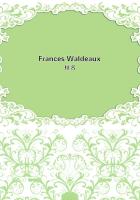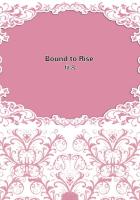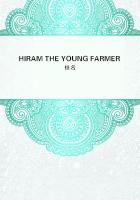"That had not occurred to me," said Michael. "I am afraid I took your silence to mean that my letters didn't interest you."He paused a moment, and his rebellion against the whole of his father's attitude flared up.
"Besides, I had nothing particular to say," he said. "My life is passed in the pursuit of which you entirely disapprove."He felt himself back in boyhood again with this stifling and leaden atmosphere of authority and disapproval to breathe. He knew that Francis in his place would have done somehow differently; he could almost hear Aunt Barbara laughing at the pomposity of the situation that had suddenly erected itself monstrously in front of him. The fact that he was Michael Comber vexed his father--there was no statement of the case so succinctly true.
Lord Ashbridge moved away towards the window, turning his back on Michael. Even his back, his homespun Norfolk jacket, his loose knickerbockers, his stalwart calves expressed disapproval; but when his father spoke again he realised that he had moved away like that, and obscured his face for a different reason.
"Have you noticed anything else about your mother?" he asked.
That made Michael understand.
"Yes, father," he said. "I daresay I am wrong about it--""Naturally I may not agree with you; but I should like to know what it is.""She's afraid of you," said Michael.
Lord Ashbridge continued looking out of the window a little longer, letting his eyes dwell on his own garden and his own fields, where towered the leafless elms and the red roofs of the little town which had given him his own name, and continued to give him so satisfactory an income. There presented itself to his mind his own picture, painted and framed and glazed and hung up by himself, the beneficent nobleman, the conscientious landlord, the essential vertebra of England's backbone. It was really impossible to impute blame to such a fine fellow. He turned round into the room again, braced and refreshed, and saw Michael thus.
"It is quite true what you say," he said, with a certain pride in his own impartiality. "She has developed an extraordinary timidity towards me. I have continually noticed that she is nervous and agitated in my presence--I am quite unable to account for it. In fact, there is no accounting for it. But I am thinking of going up to London before long, and making her see some good doctor. Alittle tonic, I daresay; though I don't suppose she has taken a dozen doses of medicine in as many years. I expect she will be glad to go up, for she will be near you. The one delusion--for it is no less than that--is as strange as the other."He drew himself up to his full magnificent height.
"I do not mean that it is not very natural she should be devoted to her son," he said with a tremendous air.
What he did mean was therefore uncertain, and again he changed the subject.
"There is a third thing," he said. "This concerns you. You are of the age when we Combers usually marry. I should wish you to marry, Michael. During this last year your mother has asked half a dozen girls down here, all of whom she and I consider perfectly suitable, and no doubt you have met more in London. I should like to know definitely if you have considered the question, and if you have not, I ask you to set about it at once."Michael was suddenly aware that never for a moment had Sylvia been away from his mind. Even when his mother was talking to him last night Sylvia had sat at the back, in the inmost place, throned and secure. And now she stepped forward. Apart from the impossibility of not acknowledging her, he wished to do it. He wanted to wear her publicly, though she was not his; he wanted to take his allegiance oath, though his sovereign heeded not.
"I have considered the question," he said, "and I have quite made up my mind whom I want to marry. She is Miss Falbe, Miss Sylvia Falbe, of whom you may have heard as a singer. She is the sister of my music-master, and I can certainly marry nobody else."It was not merely defiance of the dreadful old tradition, which Lord Ashbridge had announced in the manner of Moses stepping down from Sinai, that prompted this appalling statement of the case; it was the joy in the profession of his love. It had to be flung out like that. Lord Ashbridge looked at him a moment in dead silence.
"I have not the honour of knowing Miss--Miss Falbe, is it?" he said; "nor shall I have that honour."Michael got up; there was that in his father's tone that stung him to fury.
"It is very likely that you will not," he said, "since when Iproposed to her yesterday she did not accept me."Somehow Lord Ashbridge felt that as an insult to himself. Indeed, it was a double insult. Michael had proposed to this singer, and this singer had not instantly clutched him. He gave his dreadful little treble giggle.
"And I am to bind up your broken heart?" he asked.
Michael drew himself up to his full height. This was an indiscretion, for it but made his father recognise how short he was. It brought farce into the tragic situation.
"Oh, by no means," he said. "My heart is not going to break yet.
I don't give up hope."
Then, in a flash, he thought of his mother's pale, anxious face, her desire that he should not vex his father.
"I am sorry," he said, "but that is the case. I wish--I wish you would try to understand me.""I find you incomprehensible," said Lord Ashbridge, and left the room with his high walk and his swinging elbows.













